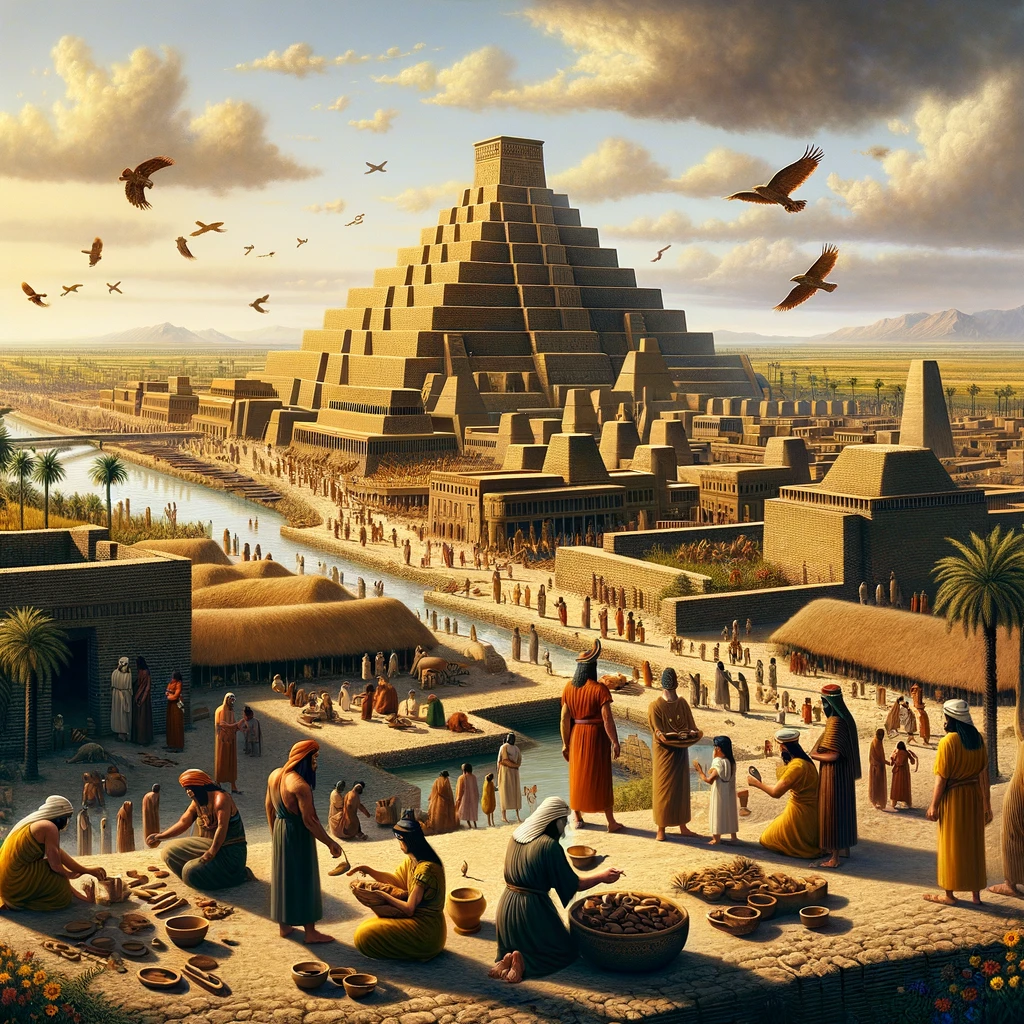Which civilization is oldest?
So, diving into the depths of ancient history, it’s a fascinating quest to unravel which civilization holds the title of being the oldest. When we talk about the cradle of civilization, Mesopotamia often takes the spotlight. The Sumerians, with their advanced city-states like Ur and Babylon, were pioneers in many aspects of civilization like agriculture, writing, and law codes. Their intricate cuneiform script on clay tablets provides a window into their rich cultural and administrative practices.
Not too far behind are the ancient Egyptians, known for their impressive architectural feats like the pyramids of Giza and the Sphinx. The Nile River served as the lifeblood of their society, enabling flourishing agricultural practices and facilitating long-distance trade. The pharaohs ruled with divine authority, overseeing a sophisticated bureaucracy and intricate religious practices that left an indelible mark on human history.
• Mesopotamia is often considered the cradle of civilization
• Sumerians were pioneers in agriculture, writing, and law codes
• Advanced city-states like Ur and Babylon showcase their cultural advancements
Moving across continents, we come to the ancient Indus Valley Civilization in present-day Pakistan and northwest India. Known for its well-planned cities like Mohenjo-Daro and Harappa, this civilization thrived around 2600-1900 BCE. The sophisticated urban planning with advanced drainage systems indicates a high level of civic organization. The discovery of seals with undeciphered script hints at a complex system of communication and trade networks that connected distant regions.
Meanwhile, in China, the Shang Dynasty (c.1600-1046 BCE) left behind an impressive legacy of bronze metallurgy, oracle bone inscriptions, and intricate artwork on jade artifacts. Their capital city of Anyang revealed palaces filled with ritual bronzes that reflected their religious beliefs and social hierarchy. The Shang rulers wielded power through military might and elaborate ancestral rituals that emphasized reverence for ancestors.
• Indus Valley Civilization had well-planned cities like Mohenjo-Daro
• Undeciphered script on seals suggests complex communication system
• Shang Dynasty in China known for bronze metallurgy and oracle bone inscriptions
table based on widely accepted archaeological and historical evidence:
| Rank | Civilization | Region | Approximate Dates |
|---|---|---|---|
| 1 | Sumerian | Southern Mesopotamia (Iraq) | c. 4500 – 1900 BCE |
| 2 | Egyptian | Nile River Valley (Egypt) | c. 3100 – 332 BCE |
| 3 | Indus Valley | Along the Indus River (Pakistan) | c. 3300 – 1300 BCE |
| 4 | Ancient Chinese | Yellow River Valley (China) | c. 2100 – 221 BCE |
| 5 | Minoan | Crete (Greece) | c. 2000 – 1450 BCE |
| 6 | Mayan | Yucatan Peninsula (Mexico) | c. 2000 BCE – 1697 CE |
| 7 | Ancient Greek | Greece and the Aegean | c. 1900 – 110 BCE |
| 8 | Norte Chico | Norte Chico region of Peru | c. 3000 – 1800 BCE |
| 9 | Olmec | Gulf Coast of Mexico | c. 1600 – 350 BCE |
| 10 | Caral-Supe (Norte Chico) | Supe Valley, Peru | c. 3200 – 1800 BCE |
This table is a simplified overview and focuses on the approximate beginning of these civilizations.
Which civilization is considered the oldest?
The Mesopotamian civilization, specifically the Sumerian civilization, is often considered the oldest known civilization in the world.
How old is the Mesopotamian civilization?
The Mesopotamian civilization dates back to around 4000 BCE, making it over 6000 years old.
Are there any other contenders for the title of oldest civilization?
Some archaeologists argue that the Egyptian civilization could also be considered one of the oldest civilizations, dating back to around 3100 BCE.
How do historians determine the age of a civilization?
Historians use various methods to determine the age of a civilization, including carbon dating of artifacts, analyzing written records, and studying archaeological findings.
Why is it important to know which civilization is the oldest?
Understanding the origins of civilizations can provide valuable insights into the development of human societies, cultures, and technologies over time. It also helps us appreciate the rich history of our ancestors.

